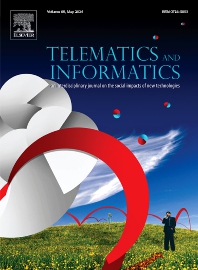Journals in Theory and mathematics
Journals in Theory and mathematics
- ISSN: 0020-0255
Information Sciences

- ISSN: 0890-5401
Information and Computation

- ISSN: 1877-7503
Journal of Computational Science

- ISSN: 0022-0000
Journal of Computer and System Sciences

- ISSN: 2352-2208
Journal of Logical and Algebraic Methods in Programming

- ISSN: 0378-4754
Mathematics and Computers in Simulation

- ISSN: 2210-6502
Swarm and Evolutionary Computation

- ISSN: 0736-5853
Telematics and Informatics

- ISSN: 0304-3975
Theoretical Computer Science
